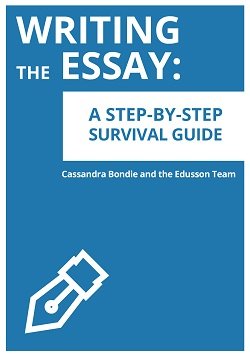Writing essays, articles, novels, or any other types of work isn’t easy as it seems, that’s why students prefer to choose an essay writing service. Let’s take an essay for example; in order to impress your professor or client you have to make sure it has everything that good essay should include. You have to understand the question, come up with concept, choose the essay topic, and find quotes, statistics or other data to support your arguments. But, that’s not enough. Using appropriate language is equally important.

I like to compare essay to a puzzle; it only counts if all pieces are at their places to form a certain picture. Without appropriate language, carefully crafted concept and other aspects equally represented in the work it doesn’t make a great impact on reader’s mind. In this article, I’m going to list a few tips and tricks that will help you use appropriate language in writing. Let’s start.
Formality Level
Most students and essay writers struggle to decide level of formality when writing, particularly when they’re composing essays or other argumentative papers. Ideally, formality level should be determined bearing in mind target audience and purpose of the work itself.
For instance, essays and other argumentative works, cover letters for job applications, or articles for reputable journals require formal style. On the other hand, emailing a friend, writing for websites that target average reader requires different language.
To make this part easier, you can just bear in mind that there are three levels of formality:
- Formal – written to unknown audience (when sending email etc), essays and other academic works
- Semi-formal – written to well-known individual or in works that are meant for general audience
- Informal – humorous content, correspondence with friends and family members, personal conversation etc.
Want more essay writing advice?
Read an Ebook created by Edusson.com
Click below to find it out :
“Essay Survival Guide”
Jargon
Jargon is defined as a type of language that is used in a particular context and may not be well understood outside of it. It’s also characteristic for groups of people; individuals outside that group might not understand their jokes or expressions. This also applies to different national backgrounds etc.
Why is jargon important? When writing, you have to include jargon that target audience will understand. For instance, when writing for medical journal you have to implement medical expressions in your work. When, essay writing for school or client you have to demonstrate vast knowledge of English language by feeling free to introduce jargon regarding certain topic or niche but also making sure you’re not overdoing it.
Slang and Idiomatic Expressions
Ideally, you should avoid using slang (y’all, cool) and using idiomatic expressions (spill the beans) in academic writing. Although idioms seem quite harmless to us, they can degrade the quality of your essay. If you’re not native English speaker then idioms are something you should be careful about. They are specific to certain people, their language, and even their country and you might not understand their true meaning. Misplaced idiom is a huge no-no.
Writing Your Essay
As I’ve already mentioned, using appropriate language is highly important for your work, regardless of the type. However, most people usually struggle finding right language for their essays. After all, writing articles or novels is somewhat easier. You already know the target audience and it makes it easier for you to choose right language. When writing essay, your job is to demonstrate knowing of the subject, develop your argument, and use formal language that is still not perceived as “arrogant” by your professor or client. Let’s see how you can accomplish that.
Create a Confident and Objective Voice
Ideally, you should use the third person most of the time. Why? It’s because using “I” in academic work depicts your personal arguments and subjectivity which isn’t practical as this type of paper should be objective.
Example: This essay discusses the importance of…
Pay attention to tense! Tenses are tricky and they pose as hidden obstacles that most people don’t avoid. Think about the purpose of the paper, it’s topic, and argument you should develop and determine the tense, past or present and make sure you don’t end up writing one sentence in past tense, next in present tense and so on.
Example: The new study published in the British Medical Journal claims that….
The Industrial Revolution had major impact upon society in multiple ways…
Avoid Complications
Just because you’re writing an academic work, it doesn’t mean you should make it complicated. It’s possible to write in formal language without making reader think “what does all this mean”.
First, always avoid contractions.
Example: instead of “don’t”, “can’t”, “shouldn’t”, “wouldn’t” you should use “do not”, “cannot”, “should not”, “would not”.
Second, use full forms of words without abbreviating them.
Example: instead of “memo”, “TV”, “quote” you should use “memorandum”, “television”, “quotation” etc.
Third, use “smarter” versions of “ordinary” words.
Example: instead of “buy”, “get” you should use “purchase”, “obtain”.
You should also:
- Avoid using too many “big words”. Keep a balance between scientific and academic expressions and ordinary language i.e. don’t use more than two academic expressions and big words per sentence. Otherwise it will look like you grabbed a thesaurus and found synonyms for every word you came up with
- Make sure that every word you write should contribute to the overall meaning of the sentence, paragraph, essay i.e. don’t fluff
- Use strong and specific verbs
- Use appropriate transitions from one sentence or paragraph onto the other
- Avoid using vague words or phrases, use specific and precise expressions
- One more time, using cliché phrases and idioms isn’t appreciated
- Avoid using taboo language, sexist expressions, assumptions, stereotypes, and generalization.
These tips are useful for type of writing but sometimes students don’t think about their necessity. To avoid mistakes while you write a speech essay ask for help from Edusson speech writing service.
To get the best possible reaction from reader(s) of your essay, you have to adjust the language to the type of essay you’re writing. While using appropriate language is largely overlooked the truth is – it can make or break your paper. Ideally, your work should be formal and level of formality adjusted to target audience. Before you start writing, think about purpose of the paper, type of work and other parameters that tell you what type of language you should use.








